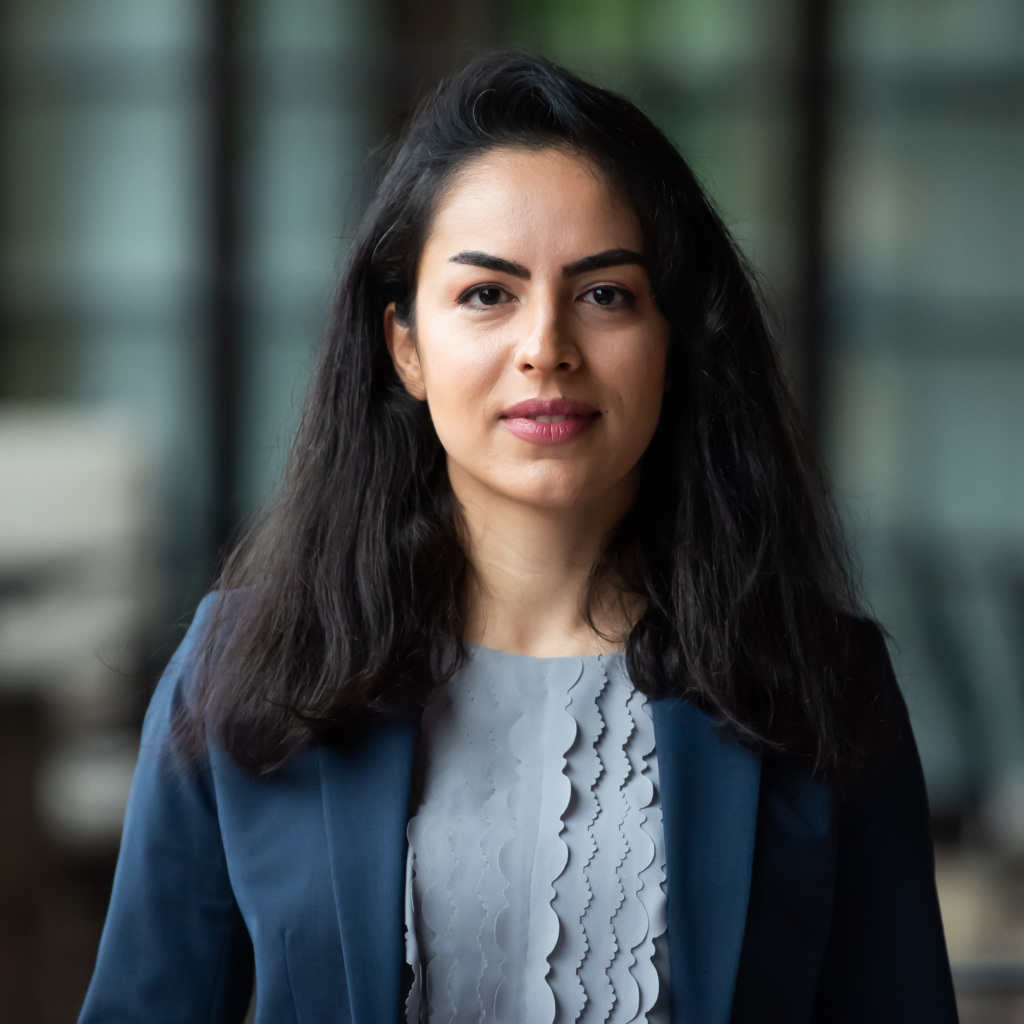News
A Year Serving Immigrant and Refugee Populations
/ Blog Post
By Azin Ahmadi, 2019 Equal Justice Works Fellow sponsored by Greenberg Traurig, LLP; formerly a 2017 New York State Family Security Project Fellow

The Capital District of New York is one of the top three regions in the United States that resettles refugees and immigrants. Nevertheless, there is a shortage of organizations providing immigration legal services to these communities. As a 2017 New York State Family Security Project (NYSFSP) Fellow, I was able to provide legal services to some of the most vulnerable immigrants and refugees in the Capital District, and thereby to narrow the justice gap.
My fluency in multiple languages and various cultural norms has been especially helpful when representing clients from diverse ethno-religious and linguistic backgrounds. As a native Farsi speaker, I was able to have direct conversations with Iranian and Afghan clients without using a translator. Even those Persian speaking clients who spoke English were able to communicate with me with a significant amount of ease, which is difficult to quantify, but palpable. Moreover, my fluency in greetings and gestures, as well as in a variety of religious and cultural practices in Afghanistan and Iran, is incredibly important. This fluency has enabled me to provide a necessary level of comfort and, most importantly, dignity to clients in what is already an anxiety-inducing process. Greeting someone and using phrases that are difficult to translate from Persian to English, but are filled with cultural significance, such as “al-salaam alaikum” (peace be upon you), “inshallah” (God willing), and “mashallah” (God willed it), provided comfort to my clients. My use of “shoma,” the formal “you” in Persian, enabled me to convey respect and honor to my clients, all of whom inhabit very vulnerable positions as immigrants and come from vulnerable backgrounds.
Some clients—like Fatima, a black female Muslim from Somalia, who wears clothing that visibly marks her as a Muslim, namely a headscarf, and who endured years of abuse from her U.S. citizen husband—intentionally turned to me for legal representation. In one of my consultations with Fatima, she stated that she wanted me to represent her in her immigration case. Because I am a young, Muslim immigrant woman of color, Fatima believed that I would not maintain assumptions about the relationship between her husband’s violence and her religion. As a result, Fatima spoke candidly about the abuse and did not feel compelled to “code switch” with me. Her openness in turn enabled me to gather critical information, which I used to argue that she should be granted the protections under the Violence Against Women Act.
My one-year NYSFSP Fellowship was incredibly rewarding and illuminating. It has demonstrated the need for people to provide culturally competent legal services for immigrants in the Capital District. I observed how critical outreach is as an effective tool for connecting immigrants with available legal services. This tool is even more vital for immigrant survivors of domestic violence who generally face additional layers of isolation such as language barriers, dependence on an abusive spouse in a foreign country, and a lack of knowledge of the legal remedies created under the Violence Against Women Act. These layers of isolation necessitate more creative and targeted approaches to conducting outreach to immigrant survivors of domestic violence, which must be culturally competent to be effective. In turn, I applied and was selected for a two-year Equal Justice Works Fellowship to focus on domestic violence within the Muslim immigrant community and to empower survivors to access immigration and other public services.
My own experiences with asylum-seeking and immigration processes indelibly shaped the core of who I am as a lawyer, activist, and community organizer. Over the past year, I built meaningful connections with immigrants and refugees through my work as a NYSFSP Fellow. My daily encounters and conversations with these women, as a naturalized Muslim-American, mother, neighbor, and immigration attorney, puts me in a unique position to help women cultivate a sense of stability and permanency in the United States.
For more information about Azin’s work, view her 2017 and 2019 Fellow profiles.
My own experiences with asylum-seeking and immigration processes indelibly shaped the core of who I am as a lawyer, activist, and community organizer.
Azin Ahmadi /
Equal Justice Works Fellow
A Year Serving Immigrant and Refugee Populations